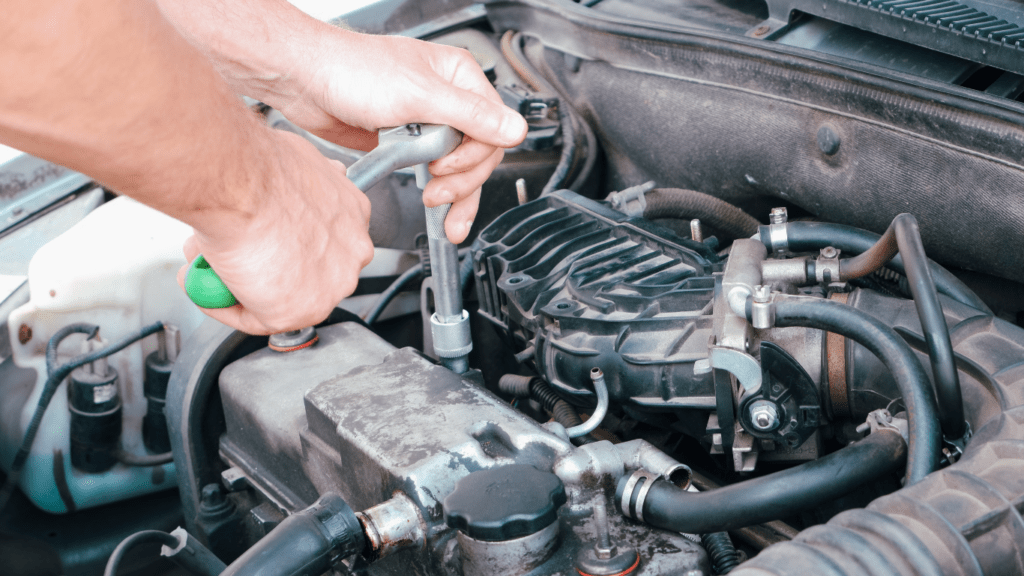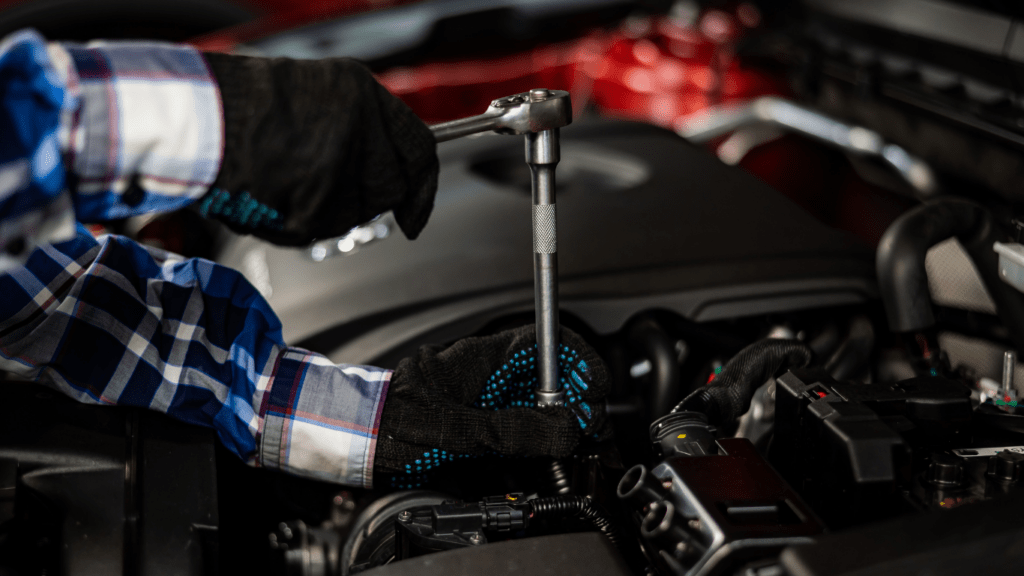Understanding Torque Wrench Basics
A torque wrench ensures that bolts are tightened to the correct specifications, avoiding damage or insufficient force.
What Is a Torque Wrench?
A torque wrench is a precision tool designed to apply a specific amount of torque to a fastener, such as a bolt or nut. It’s essential for projects requiring precise tension to prevent over-tightening or under-tightening.
According to the American Society of Mechanical Engineers (ASME), proper torque applications ensure the longevity and safety of mechanical systems.
Types of Torque Wrenches
Various torque wrench types cater to different needs:
- Click-Type: This wrench emits a click sound when reaching the set torque value, offering both auditory and tactile feedback. It’s suitable for general automotive work, making it a popular choice for DIY enthusiasts and professionals.
- Beam-Type: This type uses a pointer scale to display torque values. It’s durable and straightforward but requires the user to read the scale accurately during use.
- Dial-Type: Featuring a dial gauge for precise readings, these wrenches offer high accuracy. They’re often used in laboratories and industries where safety and specifications are critical.
- Digital: Equipped with electronic settings and LCD displays, these wrenches provide precise, easy-to-read torque measurements. They often include features like programmable settings and data storage, ideal for high-tech applications and data tracking.
- Hydraulic: These wrenches use hydraulic pressure to apply torque, suitable for industrial applications needing high torque output. They are essential in heavy machinery maintenance and assembly.
Each type offers distinct advantages and is tailored to specific tasks, ensuring users can choose the right wrench for their needs.
Factors to Consider When Choosing a Torque Wrench
Selecting the right torque wrench depends on several key factors. Understanding these will help ensure accurate and efficient work.
Accuracy Needs
Evaluate the accuracy requirements of your project. For precision tasks, choose a digital torque wrench. These offer high accuracy, often within ±1% of the set torque.
For automotive and home projects, a click-type torque wrench suffices. It typically has an accuracy of ±4%. Dial-type wrenches, accurate within ±3%, suit professional applications needing consistent precision.
Accuracy ratings vary, so always check the manufacturer’s specifications.
Wrench Size and Range
Consider the size and torque range needed. Torque wrenches come in various drive sizes, such as 1/4″, 3/8″, 1/2″, and 3/4″. Smaller sizes, like 1/4″ and 3/8″, suit delicate work in confined spaces. Larger sizes, such as 1/2″ and 3/4″, handle heavy-duty tasks requiring higher torque. Also, ensure the torque range matches your requirements.
Typical ranges span from 20 to 250 foot-pounds. For jobs requiring low torque, pick a wrench with a lower range. Conversely, use a higher-range wrench for tasks needing more torque.
Features to Look for in a Quality Torque Wrench

A good torque wrench should meet specific criteria to ensure accuracy and longevity. Here are key features to look for:
Material and Durability
Look for wrenches made from high-quality materials like chrome vanadium steel or nickel-chrome. These materials resist corrosion and wear, ensuring a longer lifespan.
The handle should provide a good grip and prevent slippage, even in greasy conditions. Construction and finish determine how well a wrench performs under repeated use.
Calibration and Maintenance Features
Accurate torque application relies on proper calibration. Check if the wrench includes a certificate of calibration from the manufacturer.
Regular calibration ensures the tool’s accuracy, which is vital for precision tasks. Maintenance features like easy disassembly and accessible lubrication points improve the wrench’s performance and longevity.
Recommended Brands and Models
Choosing the right torque wrench involves considering various brands and models. Below, I outline both budget-friendly options and professional-grade choices.
Budget-Friendly Options
Budget-friendly torque wrenches offer reliable performance without breaking the bank. Here are a few top recommendations:
- Tekton 24335: A Click-Type wrench that provides a range of 10–150 ft-lb. It’s durable and features a high-contrast dual-range scale.
- EPAuto 1/2-Inch Drive Click: This wrench covers 10–150 ft-lb and includes a sturdy ratchet head. It’s pre-calibrated to ±4% accuracy.
- CDI 2503MFRPH: Offering a range of 30–250 ft-lb, this Click-Type wrench includes positive click feedback and a quick-release button.
Professional-Grade Choices
Professional-grade wrenches meet high precision and durability standards. Here are some leading picks:
- Snap-On Techwrench: A Digital wrench with a range of 5–100 ft-lb. It provides high accuracy and an intuitive interface.
- Proto J6062C: A Dial-Type wrench that spans 0–300 ft-lb, featuring a rugged build and high accuracy, making it ideal for critical applications.
- Norbar Professional Click 150: This Click-Type wrench offers a 5–150 ft-lb range and exceptional repeatability and reliability, with high-quality materials.
These brands and models offer solid options for different needs and budgets, ensuring precision in all torque applications.

